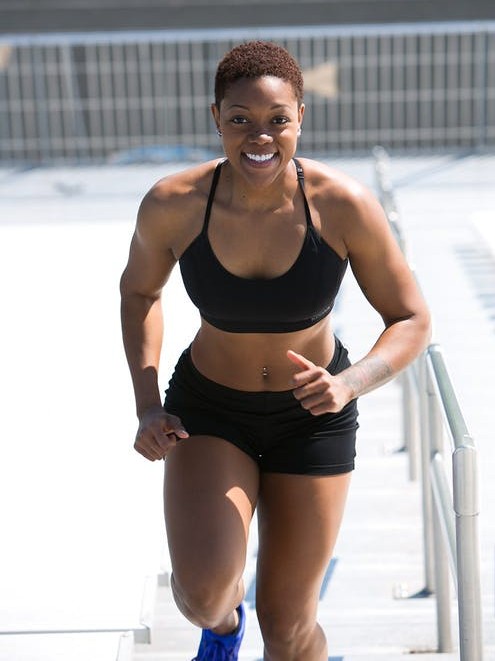
Click Here for Free Bodybuilding and Fitness Magazine Subscription
Elite Athlete Nutrition Plan

Countless elite athletes commit themselves entirely to mastering their chosen sports, honing both mental and physical capabilities.
While they relentlessly challenge their physical limits, the significance of a well-structured diet is pivotal for their triumphs. The nutritional choices they make impact their muscle strength, on-field performance, exercise routines, and recuperation periods. Join us for a revealing glimpse into the dietary habits of top-tier athletes - exploring the specifics of elite athlete nutrition plan.
Pro Athletes Diets Basics
1 You Should Plan Your Meals
Intense training regimens can lead to prioritizing convenience over nutrition if not careful. Planning is crucial. List out foods that satisfy all your dietary essentials before you set out for your food haul, and adhere to your chosen items.
Your caloric intake should ideally be divided as follows, tailored to your unique caloric needs:
Aim for 50-60% of your daily caloric intake from carbohydrates. Opt for complex carbs like whole grains, alongside a variety of fruits and vegetables.
Ensure 15-25% of your daily caloric intake comes from lean proteins. Incorporate sources like legumes, poultry, and seafood.
Obtain 20-30% of your daily caloric intake from high-quality fats. Include healthy options such as nuts, avocados, seeds, and oils like those from nuts and olives.
2 Set the Right Goals
Formulating clear goals is akin to navigating through uncharted waters; it's essential for success. Just as sports channels help shape these aspirations, VPNs aid in accessing them. Moreover, enhance security with VeePN, ensuring your online activities remain protected.
Reflect on your identity and aspirations before setting sail. After establishing your targets, tailor your dietary habits to align with them. Should your aim be to shed excess body fat, adapt your caloric consumption accordingly - the concept is straightforward.
For fat reduction, your caloric consumption must be lesser than the calories you burn. A common strategy is to strive for a daily caloric deficit of about 500 calories - translating to nearly 3,500 calories per week.
3 Frequent Meals With Breakfast Headed
Top-tier athletes understand the importance of timely nutrition, particularly the necessity of consuming a meal rich in high-quality, lean protein within an hour after starting their day. To build a breakfast that powers you through intense training, incorporate hearty choices such as steel-cut oats, quinoa, lean turkey sausage, eggs, and organic dairy products.
Don't allow more than four hours to pass without refueling. Regular nourishment is essential to maintain the energy levels required for rigorous training and to decrease the likelihood of injuries. Consistently include protein in your meals throughout the day to support efficient muscle recovery and growth.
4 Need to Control Your Fluid Intake
It's a common misconception that coffee is inherently harmful, but it's not fair to categorically deem any food as "bad." Even top-tier athletes often leverage the benefits of caffeine intake shortly before their pivotal games or competitions.
Consuming caffeine prior to physical activity has been demonstrated to sharpen mental focus and lessen the perception of exertion, thereby making tasks seem more manageable. More critically, maintaining hydration is essential for optimal health. Regular water consumption is key to ensuring the countless cells throughout our body operate efficiently. Additionally, bolstering your water intake may even contribute to weight loss since the body can confuse signs of dehydration with hunger signals.
5 Consider Physical Activity and Type of Sport
Your diet should cater to the specific requirements of your athletic discipline. Take endurance runners, for instance - their bodies demand a greater carbohydrate consumption in contrast to powerlifters, who necessitate a more protein-rich diet. Foods such as starchy veggies, legumes, whole grains, and fruits serve as superb carbohydrate reservoirs, fueling prolonged training sessions with the necessary stamina.
6 Know Your Measure
Carbs are essential for bolstering energy levels and fortifying immune function. It's important to consistently include them in our meals, with a focus on choosing wholegrain and fiber-dense options such as sweet potatoes, wholegrain rice and pasta, or quinoa for regular consumption. While it's acceptable to enjoy sugar in small amounts, indulging in sweets like cakes and chocolate bars too often can undermine your health efforts.
7 Recovery is Key
Proper nutrition following a workout holds equal significance to pre-exercise fueling. Top-tier athletes emphasize restoring glycogen stores (carbohydrates), mending and facilitating muscle development (protein), and rehydrating (water and electrolytes).
This principle applies to everyone. Consuming protein is critical for efficient recuperation, and its muscle-building impact post-exercise endures for a considerable time. Consider options like meat, fish, or even plant-based selections to support muscle recuperation and growth.
Conclusion
To reach the pinnacle of athletic success, it's imperative to zero in on every facet of your training regimen, right down to the nutrients you consume. Grasping the role of macronutrients, weaving essential micronutrients into your meals, and customizing your nutritional strategy are fundamental steps to power your sports endeavors, elevate your performance, and achieve peak physical condition.

